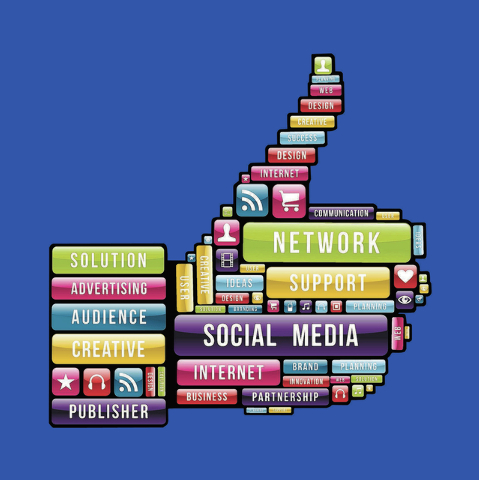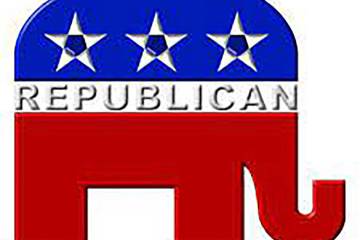Online professionalism
Whether it’s a simple user-friendly Web page or LinkedIn profile, projecting that “expert” or professional online image can seem easy for any business owner or job seeker. But with so much online opportunity to reveal things about our personalities and social media’s push to get to know us, errors in judgment can put the brakes on anyone’s professional image. There are obvious reasons for conservative approaches to setting up online profiles, but some still say there’s room for personal touches without blowing a hole through your professional status — just be careful.
Raelynn Frazier Lee, interim director of career services at the University of Nevada, Las Vegas, tells students looking to market themselves in the workforce, first and foremost, “Keep it clean and professional” when it comes to online profiles. More important, Lee says, showcase excellent communication skills. What you may say to a friend in a text or email with abbreviations and slang don’t apply to a professional online profile.
“Texting tends to truncate communication, but if you’re trying to brand yourself, (clear) communication is important,” she said.
Bill Werksman, managing partner of Resource Partners, an executive search firm for the gaming and casino industry, also highlights the importance of consistencies between your online profile and resume. Sometimes elements such as dates and types of accomplishments don’t sync between the two, and employers view these discrepancies negatively.
“Never create red flags for your candidacy with inconsistent information,” he added.
Web pages, LinkedIn, beyond
For those looking to create a Web page highlighting their accomplishments, some advise against it. Unless you are someone with a business specifically selling a product or service, Lee says a LinkedIn page is probably a better route.
With more than 220 million users, LinkedIn has become one of the most powerful business networking tools on the planet, experts say. Mark Wayman, owner of The Foundation, an executive recruiting firm in Las Vegas that also works with the casino and hospitality industry, says a LinkedIn account is a must.
“If a candidate does not have a LinkedIn account, for me, that shows a lack of initiative. It’s almost required these days,” he said.
Werksman, like Lee, doesn’t see much use for a Web page for job seekers, with some exceptions, of course.
“From a job seeker’s perspective, a Web page is only necessary if you are in the arts, graphic design, Web design industry, where you would logically want to display your portfolio or body of work. Otherwise, LinkedIn should be your site of choice,” he said.
Ruth Furman, founder of Image Words Communications, a local marketing and public relations firm, is also a big LinkedIn fan, but she also still likes personal Web pages.
“A fabulous resume coupled with an extraordinary personal website that can be shared as a link may give you an edge over another job seeker,” she said.
But like other social media platforms, LinkedIn comes with some etiquette do’s and don’ts, said Amanda Llewellyn, an account executive with The Ferraro Group, a Nevada marketing and communications firm. Llewellyn says there are a growing number of users spamming their products and services on the network.
“That can be challenging to those who are trying to make a genuine connection,” she added.
When to get personal
For Twitter, Facebook, LinkedIn, Pinterest, Tumblr and other social media users, getting to know one another, personally, is the primary driver behind signing on for the experience. So when is it appropriate to let a little bit of the personal into your professional profile?
Llewellyn said having a sense of humor and being lighthearted can work to your favor, if done right.
“The purpose of social media is to engage friends and fans. When you’re posting things that are timely, funny, cute or a meme that applies to your field, that’s OK,” she said.
She also advises clients to give meaningful insights to active, even lively, discussions that relate to their field. As long as the information, even if light-hearted, relates to the discussion, online followers will likely see you in a professional and fun way; both are good things.
Llewellyn and Furman also highlight the importance of not “going dark” for too long on social media. Llewellyn said posting a few times a week should be the minimum, but getting to it every day is preferred.
Furman said it’s also getting harder today to separate the business and personal sides of our lives. Often times, people feel more comfortable doing business with someone they know or are familiar with, she said. And social media can get that word out about you, your expertise and your accomplishments in a way that creates followers and fans.
Still, etiquette rules the day, she added. Edit and re-read posts and always keep the audience in mind before hitting ‘send.’
“While ‘tagging’ social media posts on Facebook and Twitter is a great way to draw additional attention to posts, do so with caution, and in some cases ask permission first. … I always say it’s better to miss an opportunity than to offend,” she said. “And think twice before ‘unfriending’ someone or ‘friending’ them in the first place on Facebook. It’s so easy to offend people. And don’t hold social media grudges. We can’t control others — only how we react to others.”
Even still, some see definite lines between professional and personal images when it comes to social media, and discourage their coexistence.
“I do not think Facebook should ever be used for professional purposes,” Werksman said. “It seems to me the lines are very clear: Facebook for your personal relationships and friends, LinkedIn for your professional/work networking purposes. … You want to ‘play dress up’ and wear costumes and take party pictures? Go ahead, but keep those for your Facebook friends and monitor your privacy settings so they are visible to only those you want to see them.”
Lee also advised students to be aware of privacy settings across all their social media platforms. And both she and Llewellyn assert that social media is not a place to vent about anything.
Llewellyn advised clients to take an hour to cool off before venting frustration online. Usually, after an hour, with a more level head, it’s not that important anyway.
“The age of portraying one image in private and one in personal life may not be over, but it’s definitely changed. … It’s hard to keep those identities separate. You can do it. But it’s tough,” she noted.
When history haunts …
For some, those free-wheeling high school and college years have become a thing of the past, and for others they may have become a legacy — both can be for better or worse when it comes to the professional world. Llewellyn advises clients that everything posted online can be found again. Even if you post something for only 20 minutes then take it down, it still can be dug up later, she said.
According to the Jobvite 2013 State of Social Recruiting survey, 94 percent of recruiters already use or plan to use social recruiting in 2013. About 42 percent of responders have reconsidered a candidate based on content viewed in a social profile, which led to both positive and negative re-assessments.
The biggest positive re-assessment came with viewing volunteering or acts of charity. The negatives were obvious: pictures of alcohol consumption (47 percent of responders), spelling/grammatical errors (61 percent), profanity (65 percent), posts or tweets sexual in nature (71 percent) and illegal drug use (83 percent).
Surprisingly, overtly political or religious posts provided a neutral view in re-assessments, according to the survey. Nonetheless, the message is loud and clear: Prospective employers are watching you.
Wayman said he does his share of online research when evaluating a job candidate.
“I’m looking for everything from lawsuits to background information that helps me determine their character,” he said. “For instance, if they have a profile picture on Facebook of them drinking in a nightclub, they are probably a ‘pass’ for me. My roles are very senior level executive jobs and goofy pictures or email addresses like mymommaisahippo@gmail.com show a lack of good judgment.”
Lee tells high school and college students that today’s social media posts are what employers see tomorrow, or even years down the road. Tense relationships or inappropriate behavior highlighted online through pictures or statements can come back to haunt years down the road.
“These are quick transitions from high school to college, then you’re a young adult looking for employment,” Lee said. “We can help you create a resume and help you learn about volunteer opportunities and other experiences. But we can’t erase that digital footprint.”
Lee said it’s important to know that even seemingly unrelated rants or negative posts against someone or something can give a negative perception that you’re a whiner or complainer, even if it has nothing to do with your professional experience or expertise. And watch your links, too. Being linked to a perceived complainer or whiner online can bring guilt by association.
“It’s almost like you’ve lost your chance with an employer because of what you’ve already told them,” Lee added.
Fixes, some old rules
The Web and social media can do irreparable harm or bring great gains for a business or working professional. But when the going gets tough in the form of customer disputes, the online world is watching how professional you really are.
Llewellyn advises business clients to be particularly diligent when it comes to resolving customer problems. Lashing out and trying to negatively portray a person who is harming your business with a rant is always a dead end.
“Those things can be shared with the click of a mouse,” she said. “And they can do harm to your brand. … You want to, in a public thread, make clear you want to resolve the issue, apologize for the experience and follow up. Figure out how to resolve it.”
Beyond the tough moments, simple courtesy still has a place in social media and professional profiles. Furman said maintaining a polite relationship after a meeting or interview still carries weight. Sending a thank you note, even in hard copy form, is good, too.
“I have a friend who does this and I think it’s brilliant,” Furman added.





























